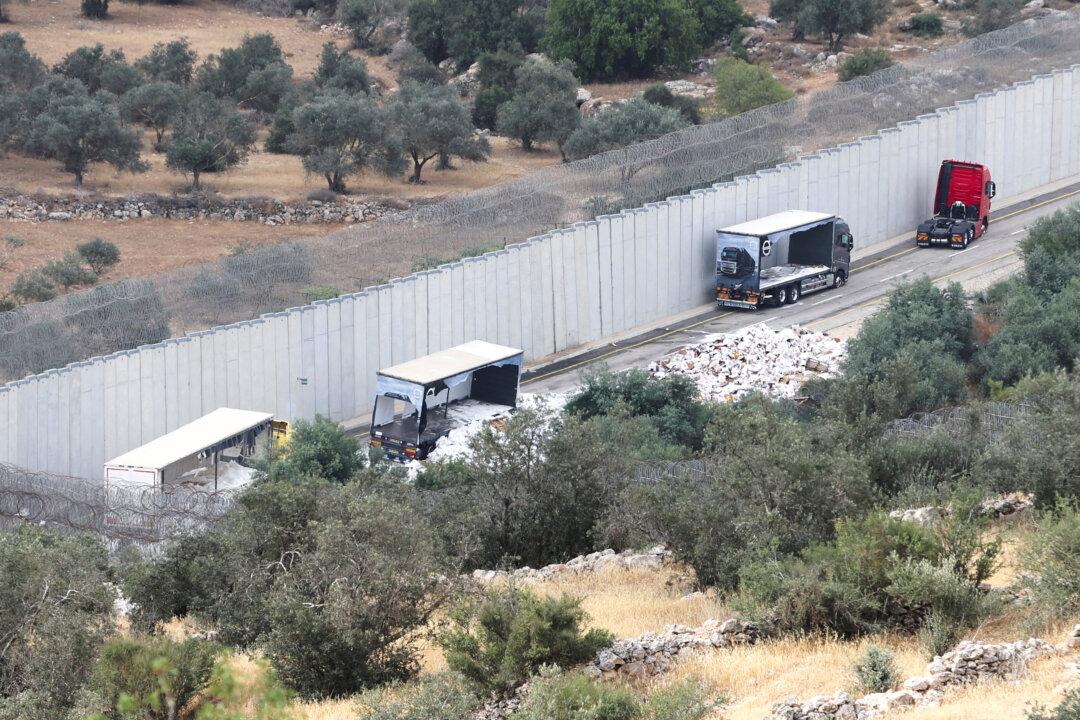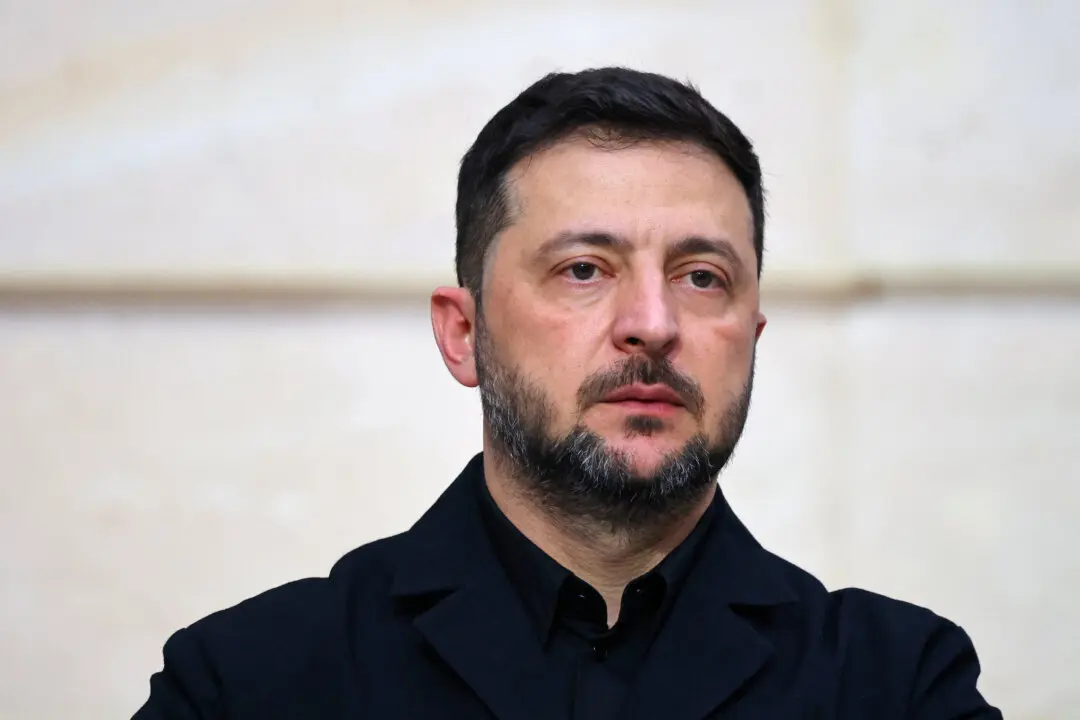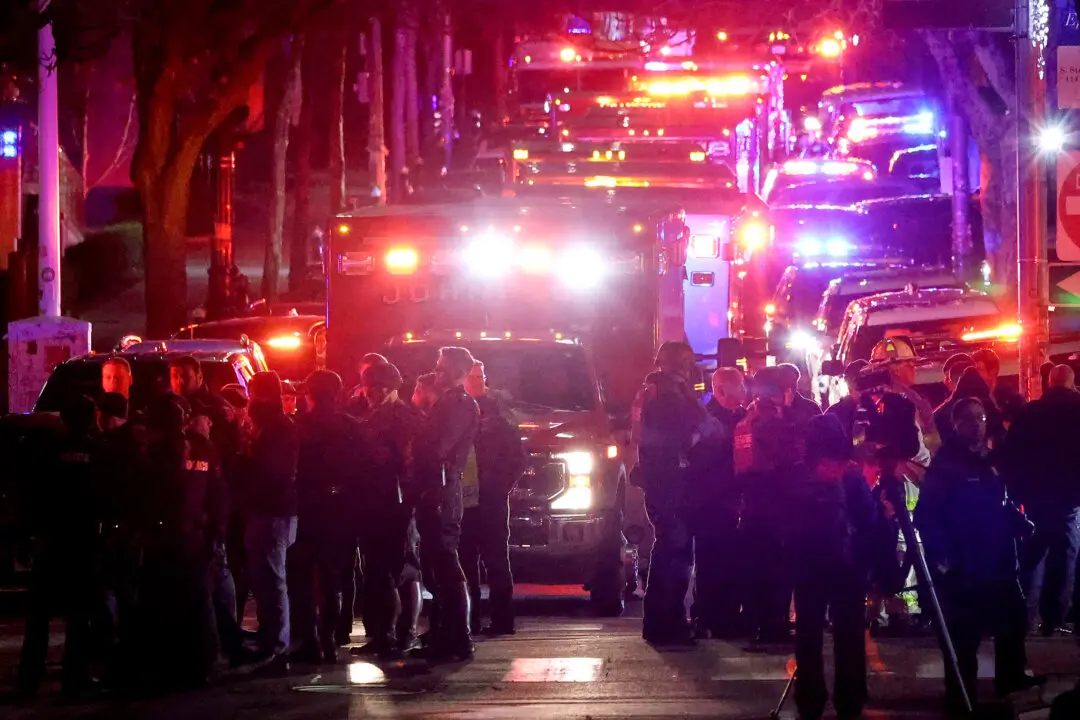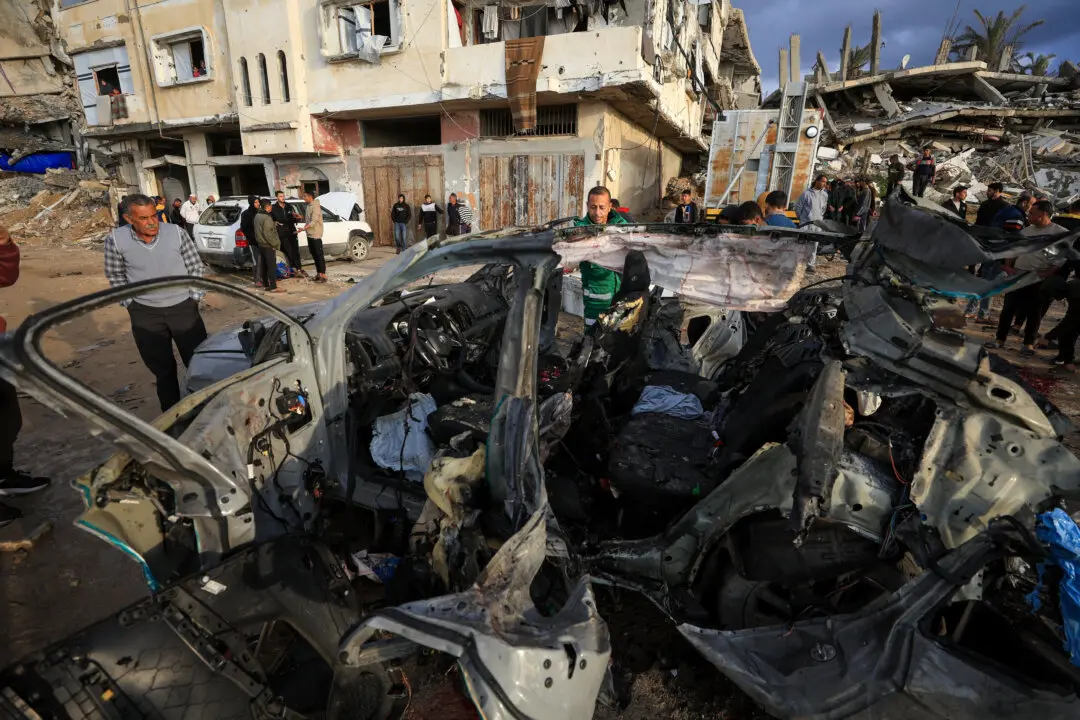President Joe Biden’s administration announced sanctions on June 14 against an Israeli activist group blocking shipments of humanitarian aid into the Gaza Strip.
“The Department of State is today designating Tzav 9, a violent extremist Israeli group that has been blocking, harassing, and damaging convoys carrying lifesaving humanitarian assistance to Palestinian civilians in Gaza,” the U.S. State Department announced in a statement.





